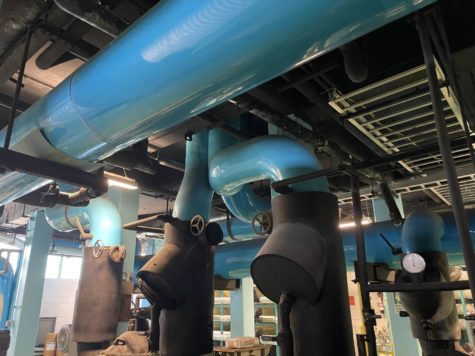Bernhard promises dramatic utility improvements for Tulane
March 16, 2022
On Jan. 27, Tulane University announced a partnership with Metairie-based engineering and contracting firm Bernhard — a 30-year plan for large-scale improvements to campus infrastructure, alongside a one megawatt solar generation facility that will produce 10% of Tulane’s Uptown power consumption.

The plan, administrators say, will significantly reduce Tulane’s greenhouse gas emissions with the goal of reaching 30% reduction by 2025 and carbon neutrality by 2050.
The partnership is expected to “[address] significant capital renewal, sustainability and energy optimization priorities across Tulane’s uptown and downtown campuses,” a Tulane press release said.
Those priorities are outlined in Tulane’s capital renewal plans and include improvement to campus infrastructure based on the life expectancy of Tulane’s equipment and assets and sustainability goals such as reaching carbon neutrality by 2050.
Randy Philipson, Tulane’s vice president of facilities, campus development and real estate, said that while Tulane was not previously falling short of those priorities, “the structure of the partnership now allows us to expedite needed improvements through the upfront funding Bernhard provides.”
The large-scale improvements to campus infrastructure Bernhard promised are expansive and include upgrading much of Tulane’s current HVAC systems, upgraded generators to reduce reliance on local infrastructure and the replacement of current lighting with more efficient LED lighting.
Tulane expects improvements to existing infrastructure, coupled with the creation of new infrastructure, to better protect the community from the dangers of extreme weather and natural disasters.
“Due to the hurricane-prone nature of Tulane’s campuses, several goals were formulated to improve resiliency including protection of critical research and medical labs at Tulane’s Downtown campus as well as the ability to power critical needs at the Uptown campus to serve students before, during, and after a storm,” said Rob Guthrie, chief development officer at Bernhard.
Bernhard and Tulane collaborated to design an electrical resiliency plan utilizing several power generation tools that will enable Tulane to keep critical power on for both campuses in the event of outages.
Part of this plan includes installing generators on Tulane’s campuses as well as emergency support drawn from combined heating and power generation.
“Bernhard is responsible for meeting Tulane’s needs during storms including ensuring essential personnel [are] in place and properly staffed,” Guthrie said. “This will provide peace of mind that critical assets will remain powered properly and allow Tulane to keep students on campus during a minor storm and return students to campus quickly after a major storm.”
In addition to the energy, infrastructure and weather-protection benefits, Bernhard also guaranteed that this partnership will significantly cut Tulane’s annual utility costs over the deal’s lifetime.
“Ultimately, the goal of this partnership is not financial benefits but rather a balance of financial benefits and energy benefits,” Philipson said. “The partnership was carefully structured in a way that these benefits are not mutually exclusive, and instead, go hand-in-hand.”






















Leave a Comment